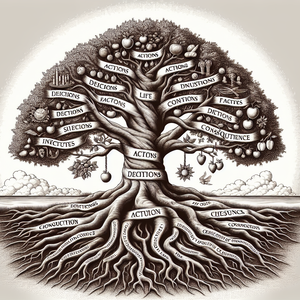The Sustainable Journey of Pandora: Crafting a Greener Future

At the core of Pandora's sustainability mission is a steadfast commitment to ethical sourcing. The company has made considerable strides in ensuring that the precious metals and gemstones used in its jewelry are obtained responsibly. This commitment involves engaging with suppliers who adhere to strict ethical guidelines aimed at minimizing environmental impact while respecting human rights and labor standards. A prime example of Pandora’s dedication to ethical sourcing is its transition to recycled silver and gold. In 2020, the company announced its ambitious goal to source all of its silver and gold jewelry from recycled materials by 2025. This initiative not only reduces the demand for newly mined metals but also mitigates the environmental damage associated with mining, which has historically been linked to deforestation, pollution, and community displacement. Furthermore, Pandora's partnerships with suppliers focus on ensuring that materials are conflict-free and sourced from mines that prioritize worker safety and environmental stewardship. By establishing these partnerships, Pandora is setting a high standard in the industry for ethical practices.
Eco-Friendly Materials: Redefining Jewelry Production
Beyond ethical sourcing, Pandora is committed to integrating eco-friendly materials into its product lines. The brand has embraced innovative alternatives that align with its sustainability goals, such as lab-created gemstones and sustainable substitutes for traditional materials. By utilizing lab-grown diamonds and gemstones, Pandora offers consumers high-quality jewelry without the detrimental environmental and ethical repercussions tied to conventional mining. Additionally, Pandora has made significant investments in sustainable packaging solutions. The brand is transitioning away from plastic and opting for recyclable and biodegradable materials, effectively reducing waste and promoting responsible consumption. This holistic approach to sustainability not only minimizes the environmental impact of its products but also influences consumer behavior by encouraging more sustainable choices.
Impact of Sustainable Practices on Consumers and the Industry
Pandora's sustainability initiatives resonate deeply with today’s environmentally conscious consumers. As individuals increasingly seek to align their purchasing decisions with their values, brands prioritizing sustainability stand to cultivate lasting connections with their customers. By positioning itself as a leader in sustainable practices, Pandora enhances its brand reputation and attracts a loyal customer base that values eco-consciousness. The ramifications of Pandora's practices extend beyond its own operations. As a major player in the jewelry industry, Pandora’s commitment to sustainability can inspire other brands to follow suit, creating a ripple effect that encourages widespread change. When consumers observe a well-established brand making significant strides toward sustainability, it raises awareness about the importance of these issues and sets a benchmark for others in the industry to aspire to. Moreover, the transparency surrounding Pandora's sustainable efforts fosters trust among consumers, who are increasingly demanding accountability from the brands they support. This trend not only reflects a shift in consumer behavior but also signals a broader movement within the industry towards more responsible practices.
Pandora's journey toward sustainability is a remarkable demonstration of the brand's awareness of its role in addressing critical environmental challenges. By focusing on ethical sourcing, integrating eco-friendly materials, and promoting responsible practices, Pandora is not only creating exquisite jewelry but also paving the way for a greener future in the jewelry industry. As consumers become more vocal about their demand for transparency and responsibility, Pandora exemplifies how a company can align its values with those of its customers. In doing so, Pandora is not merely selling jewelry; it is sharing a narrative of hope, accountability, and a commitment to preserving the planet for future generations. The path to sustainability is ongoing, but Pandora is steadfast in its mission to craft a brighter, greener future for all.
Sustainability Manager
Large consumer goods companies, fashion brands, and retail corporations
Core Responsibilities
Develop and implement sustainability strategies to achieve company-wide goals.
Monitor industry trends and regulatory changes related to environmental practices.
Collaborate with cross-functional teams to integrate sustainable practices into operations.
Required Skills
Strong knowledge of sustainability frameworks and certifications (e.g., ISO 14001).
Excellent project management skills with a focus on strategic planning.
Experience in stakeholder engagement and sustainability reporting.
Ethical Sourcing Specialist
Jewelry brands, textiles companies, and food manufacturers
Core Responsibilities
Evaluate and manage supplier relationships to ensure compliance with ethical sourcing standards.
Conduct audits and assessments of suppliers for environmental and labor practices.
Collaborate with sourcing teams to identify and onboard conflict-free materials.
Required Skills
In-depth understanding of ethical sourcing regulations and standards (e.g., Fair Trade).
Strong research and analytical skills to assess supplier impact.
Proficiency in negotiation and relationship management.
Environmental Compliance Analyst
Manufacturing firms, consultancy agencies, and government organizations
Core Responsibilities
Monitor and analyze company operations to ensure compliance with environmental regulations.
Prepare reports and documentation for regulatory submissions and audits.
Recommend improvements to minimize environmental impact in production processes.
Required Skills
Knowledge of environmental laws and regulations relevant to the manufacturing sector.
Strong analytical skills with experience in data collection and analysis.
Familiarity with environmental management systems (EMS).
Sustainable Materials Engineer
Sustainable fashion brands, automotive manufacturers, and product design firms
Core Responsibilities
Research and develop eco-friendly materials for use in product lines.
Evaluate the lifecycle impacts of materials and recommend alternatives.
Collaborate with product development teams to incorporate sustainable materials into designs.
Required Skills
Background in materials science or engineering with a focus on sustainability.
Experience in lifecycle assessment (LCA) methodologies.
Innovative mindset with strong problem-solving skills.
Corporate Social Responsibility (CSR) Coordinator
Corporations across various sectors, non-profits, and consultancy firms
Core Responsibilities
Assist in the development and execution of CSR initiatives aligned with company values.
Engage with community stakeholders and manage corporate giving programs.
Measure and report on the impact of CSR activities and sustainability efforts.
Required Skills
Strong communication and interpersonal skills for stakeholder engagement.
Experience in program management and community relations.
Ability to analyze and report on social impact metrics.


